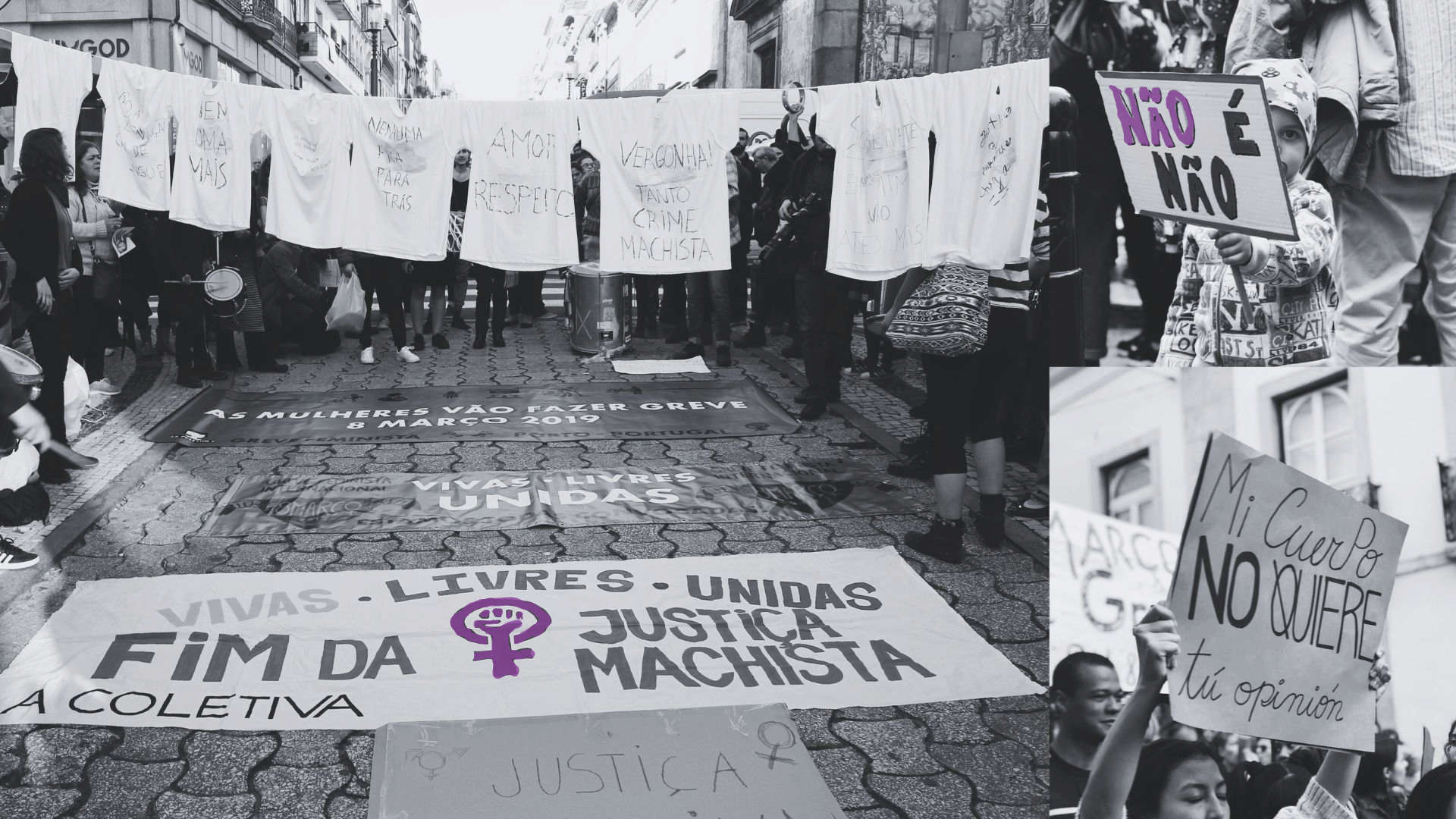
FEMglocal – Glocal feminist movements: interactions and contradictions is a research project that aims to analyse glocal feminist movements grounded in the Portuguese context, to map feminist activist movements in Portugal, studying their history, their life flows, their internal and external communication dynamics, as well as the interactions and contradictions between the global and the local, the digital and the face-to-face. It intends to contribute to recover the historical memory of social invisibility of feminist movements in Portugal, focusing on social mobilisation, communication and media visibility strategies.
Podcast
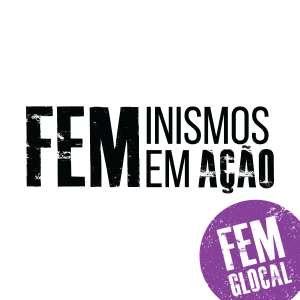
Latest publications
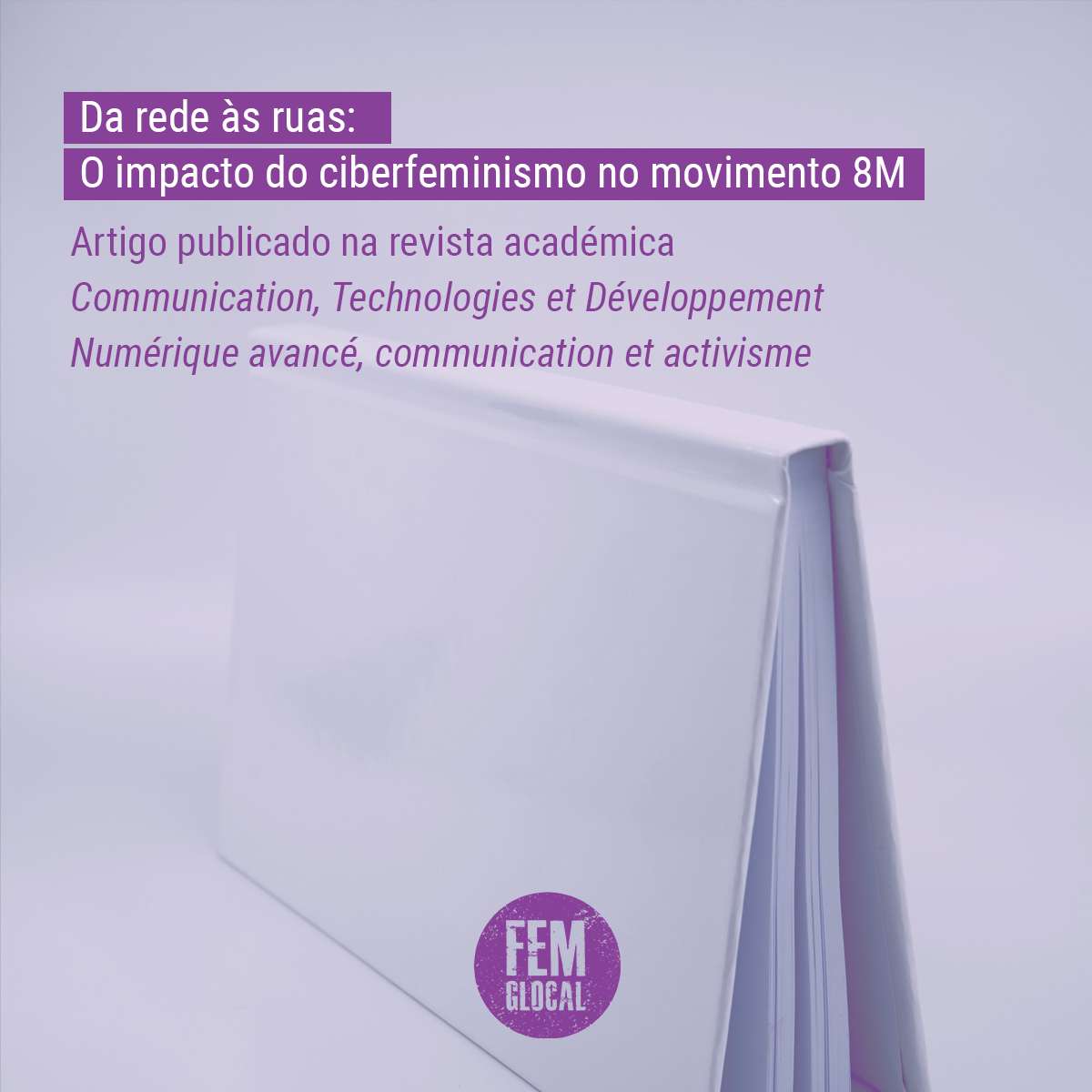
Da rede às ruas: o impacto do ciberfeminismo no movimento 8M
Camila Lamartine & Carla Cerqueira
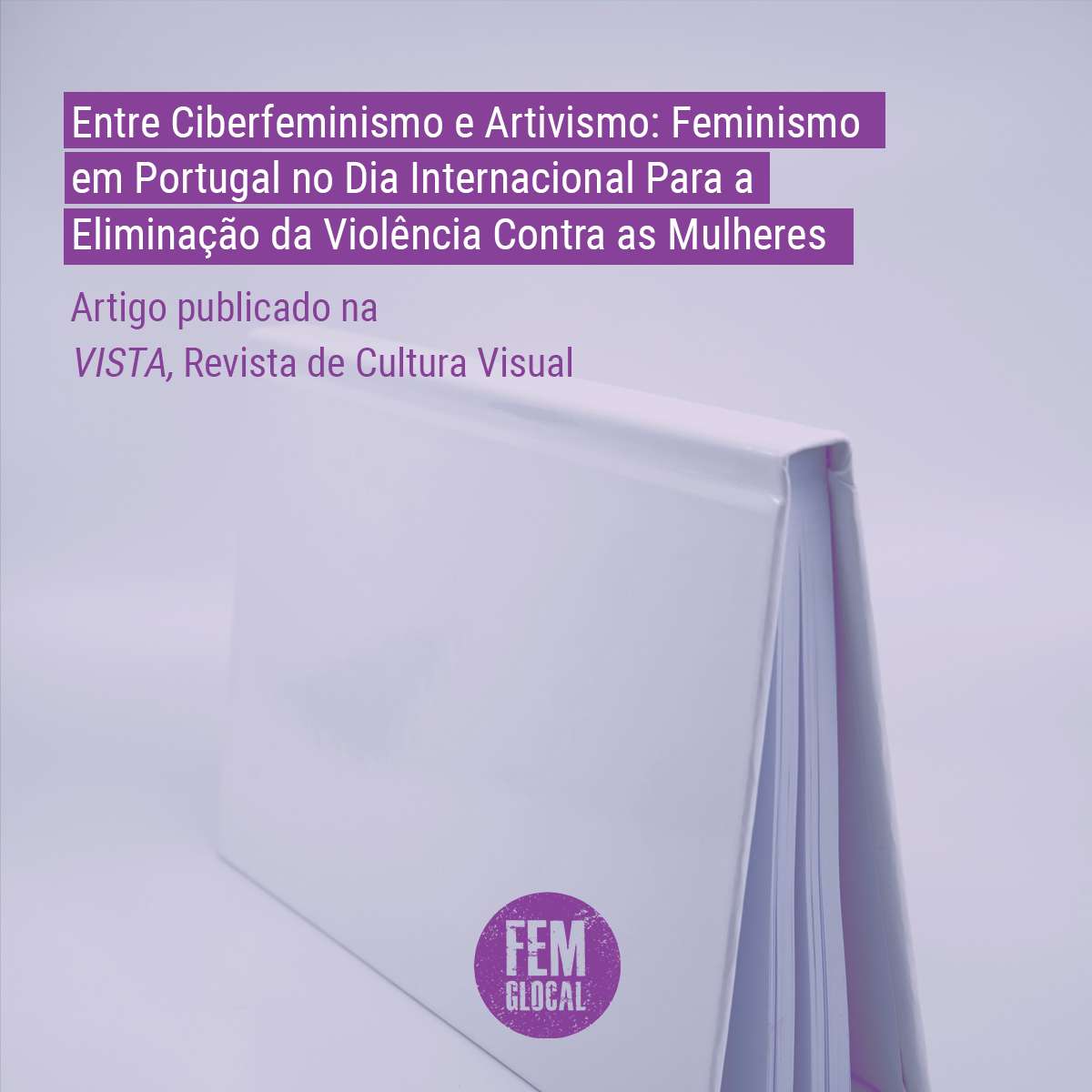
Entre Ciberfeminismo e Artivismo: Feminismo em Portugal no Dia Internacional Para a Eliminação da Violência Contra as Mulheres
Camila Lamartine e Carla Cerqueira
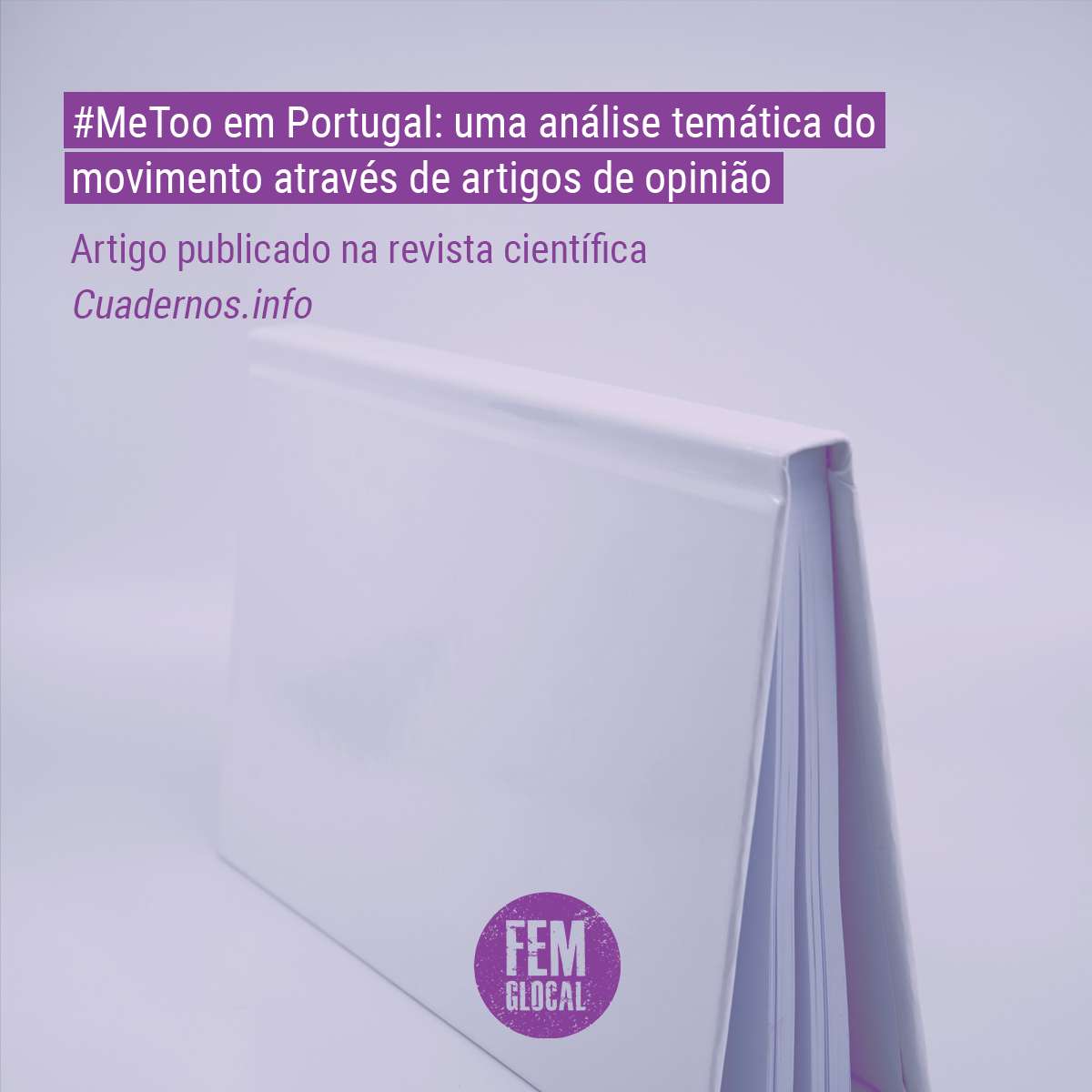
#MeToo em Portugal: Uma análise temática do movimento através de artigos de opinião
Carla Cerqueira, Célia Taborda e Ana Sofia Pereira

Documentary
Feminisms: The Freedom to Be
Documentary | Duration: 01:17:34
Set against the backdrop of the preparations for and celebration of International Women’s Day on March 8, Feminisms: The Freedom to Be takes us on a journey through the past and present of feminist movements in Portugal.
Featuring 28 voices from different generations, backgrounds, and life experiences, the film brings personal testimonies into dialogue with images from the Feminist Strike across various cities, archival materials, photographs, and activist media. Individuals from diverse walks of life – from researchers to activists, from informal collectives to organized associations, both anonymous people and public figures – who claim feminisms through multiple gender identities, share their experiences of struggle, discrimination, and feminist resistance that help shape a plural and intersectional narrative of Portuguese feminisms.
Throughout this journey into feminist movements across the country, the documentary also leads us behind the scenes of March 8: from the collective act of hand-painting protest signs, where we witness the growing enthusiasm that precedes the occupation of public space, to the vibrant marches where voices rise and echo through the streets, carrying chants and demands for change. We walk alongside – and allow ourselves to be carried by – a human landscape that moves symbolically and collectively, casting light on the many struggles and rights yet to be fulfilled.
Rather than presenting a singular account of feminisms, this documentary – the result of empirical and reflective work carried out as part of the research project FEMglocal – Glocal Feminist Movements: Interactions and Contradictions – opens space for diverse voices and lived experiences, fostering the emergence of plural narratives that reclaim stories long forgotten, silenced, or nearly lost. By materializing a collective memory that bridges the present and the possibilities of the future, Feminisms: The Freedom to Be asserts itself as an act of listening, archiving, and action.
Director & Writer: Ana Sofia Pereira & Vanessa Ribeiro Rodrigues
Director of Photography: António Morais, AIP
Sound Director: Lurdes Osswald
Sound Post-production: Sérgio Silva & João Silva
Film Editor: Eduardo Domingues
Additional Footage:
António Morais, Catarina Machado, Catarina Rocha, Diana Choi Loureiro, Eduardo Domingues, Vanessa Ribeiro Rodrigues
Producers: Ana Sofia Pereira & Vanessa Ribeiro Rodrigues
Production Assistant: Diana Choi Loureiro
Scientific Coordination: Carla Cerqueira & Célia Taborda
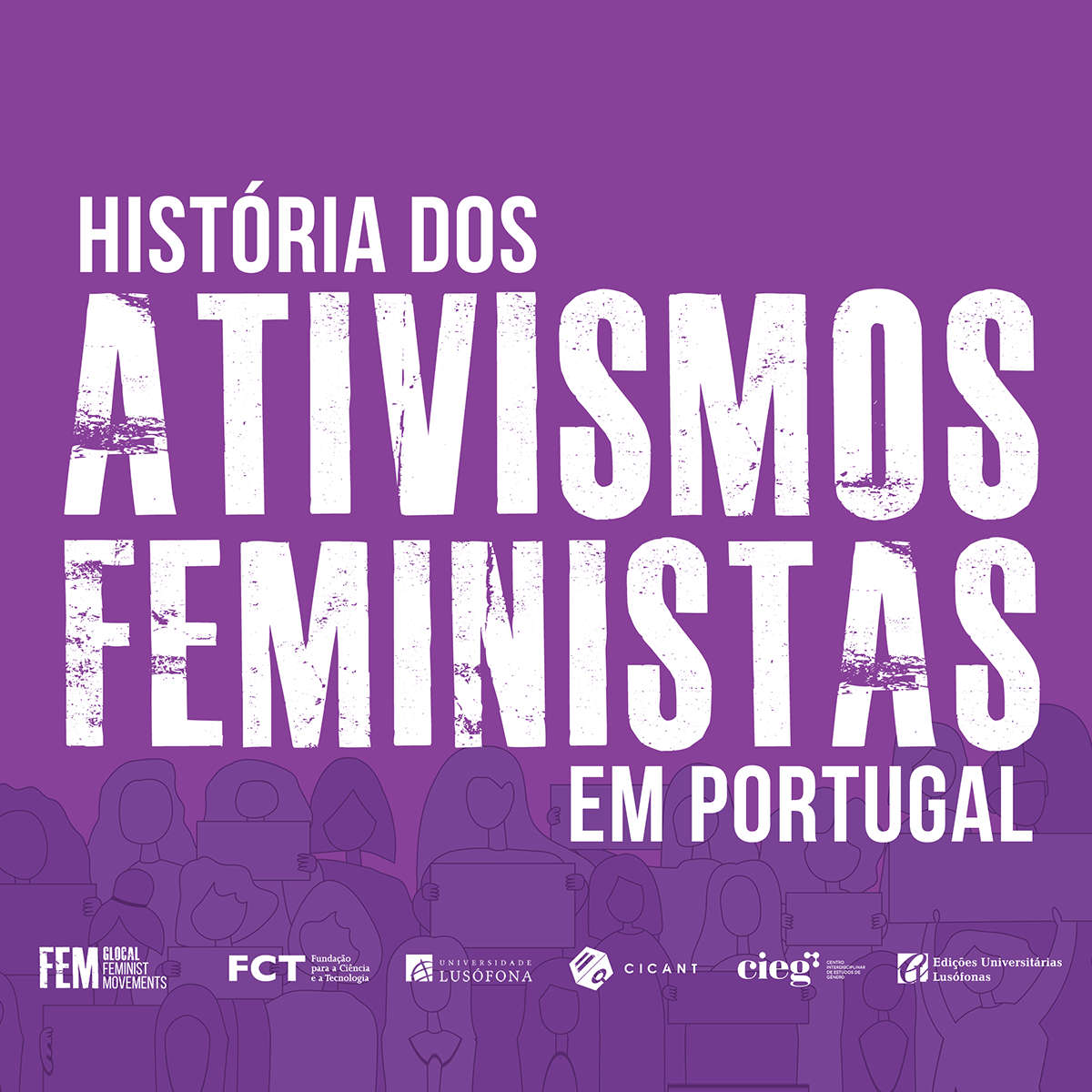
The booklet “História dos Ativismos Feministas em Portugal” [History of Feminist Activisms in Portugal], developed within the scope of the FEMglocal project, seeks to stimulate public discourse, especially within educational settings, about feminist activisms and gender issues. Additionally, it aims to foster reflection on the singular narrative of feminism, deconstructing it through a logic of situated knowledge.
By revisiting events and figures related to feminist activisms in Portugal, the booklet tries to reintroduce into History the memory of Portuguese activists and their struggles. This serves as a contribution to education for gender equality/feminisms and, consequently, human rights.
Designed for individuals across various age groups, the booklet prioritizes accessible language and incorporates external links (videos, reports, maps, among others) to stimulate curiosity and encourage further exploration of additional information related to the discussed concepts.
We invite you to read and use this booklet as a pedagogical tool in both formal and non-formal education strategies.
